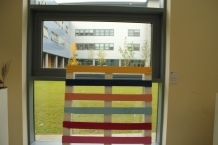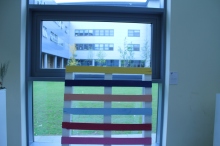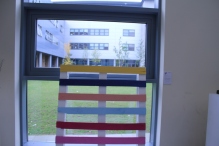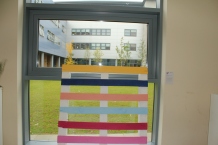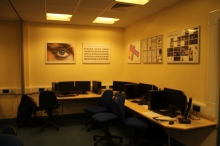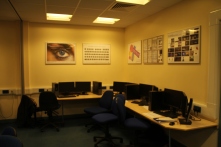For this piece of work I am going to investigate the different skills and knowledge needed to obtain a job involving sound in the media industry. I am going to explore the different jobs there are involving sound and explain what they would do.
What do they do?:
There are a lot of jobs involving sounds when creating a production, such as:
- Boom Operator
- Sound Engineer
- Sound Assistant
- Director of Sound
- Foley Operator
Boom Operator:
The Boom Operators operate the boom microphone while shooting, a lot of skill is need to do this as they need to be careful of specific things. They need to familiarize themselves with the camera movements so they don’t show up, cast a shadow or a refection in shot. Along with the camera movements they also need to remember the script word for word so they can position the boom microphone correctly and follow the actors when they move to ensure the best quality of sound.
The boom Operator is also responsible for all the sound equipment such as clip microphones, they make sure they’re positioned correctly and all working fine. If the Boom Operator does a good job they can save a lot of money for the production as the actors wont a have to re-record the lines in a record studio and redub it.
Sound Engineer:
After the Sound Assistant has set up all the equipment being used the Sound Engineer operates it during the shoot. They would also record each instrument in a song being played separately as different tracks, then mix all the tracks together to make the final piece.
Sound Assistant:
The Sound Assistant does a lot of things generally to make the Sound Engineers job easier, he sets up most of the equipment for the Sound Engineer to operate during the shoot. Like the Boom Operator they need a good understanding of the script as they may need to stand in as a second Boom Operator on bigger shoots in order for this to be the best quality possible they work very closely with the Boom Operator and Sound Supervisor.
Sound Designer:
The Sound Designers are in control of both post and pre production sounds, they decide what sound are going to be needed for the type of project they’re taking part in. They may record original sounds if they need to. They spend a lot of time manipulating the sounds their working with using things like synthesizers, this is the mostly experimenting with what sounds good and what doesn’t and once they have done all this it is all mixed and put into the final piece.
Foley Operator:
The Foley Operator uses props to create realistic sounds for the film such as if there was a creaky door then they would have some kind of door hinge on a piece of wood and loosen or tighten it depending on the sound they require. This pert of the production can vary in the amount of time taken depending on the budget, the reason for this is that some sound effects require certain objects and if the Foley Operator has to go track it down specifically then it will waste time.
How to become one?:
Boom Operator:
You will need experience as it is a tricky job, it can be paid or voluntary in film, television, community media, the music industry or even hospital radio similar to the Foley operator. if you can become a Sound Assistant for a Sound Mixer you may be able to operate a boom on bigger shoots.
You don’t need any qualifications however there are many courses available to improve your knowledge.
Sound Engineer:
There are a lot of courses that teach you everything that you need to know about the equipment used a Sound Engineer.
Sound Assistant:
The best way in is to a runner or a trainee and follow someone who is a more professional, experienced at the job learning first hand how to do the job you wish to do. You can apply through Trainee Finder to become a Trainee in the industry.
You don’t need a qualification however you would need to show a lot of interest, be punctual and professional.
Foley Operator:
Starting out as a runner in a sound studio would be a good place to start because you get to see them at work and hopefully become an assistant for a Sound Editor or Foley Mixers. You could also apply through Trainee Finder which give you experience of being apart of the industry and help you meet people already in the industry who can recommend or even hire you.
You will need a degree in one of these five things, Arts, Music, Electronics, Maths, or Sound Technology.
http://creativeskillset.org/search?q=boom
I knew of these job roles before this lesson but now I understand them in more detail and how I would start to become one if I wanted to. I also found the Foley Operator really interesting and never realised that this existed.









